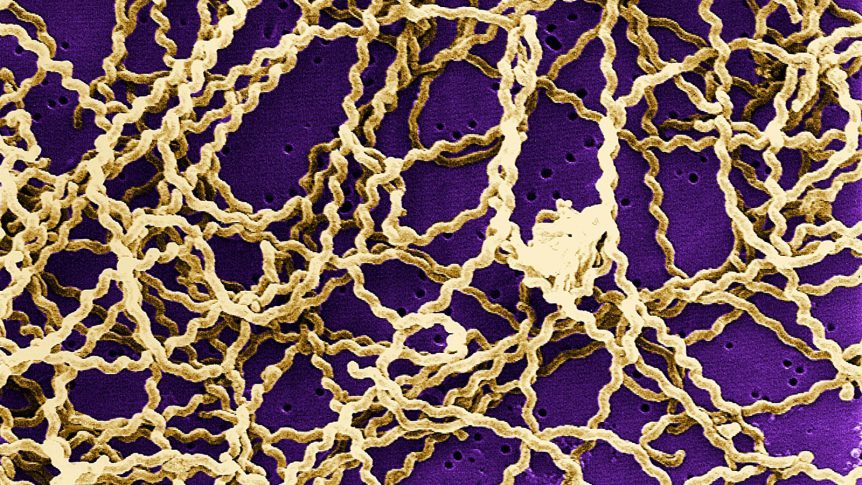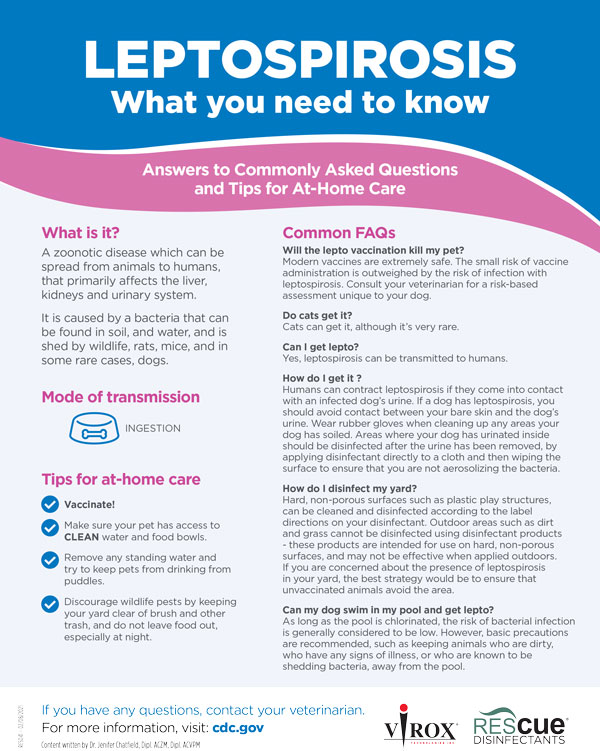What is it?
Leptospirosis (or Lepto) is a zoonotic disease which can be spread from animals to humans, that primarily affects the liver, kidneys and urinary system.
It is caused by a bacteria that can be found in soil, and water, and is shed by wildlife, rats, mice, and in some rare cases, dogs.
Mode of transmission
Ingestion
Tips for at-home care
- Vaccinate!
- Make sure your pet has access to CLEAN water and food bowls.
- Remove any standing water and try to keep pets from drinking from puddles.
- Discourage wildlife pests by keeping your yard clear of brush and other trash, and do not leave food out, especially at night.
Common FAQs
Will the lepto vaccination kill my pet?
Modern vaccines are extremely safe. The small risk of vaccine administration is outweighed by the risk of infection with leptospirosis. Consult your veterinarian for a risk-based assessment unique to your dog.
Do cats get it?
Cats can get it, although it’s very rare.
Can I get lepto?
Yes, leptospirosis can be transmitted to humans.
How do I get it ?
Humans can contract leptospirosis if they come into contact with an infected dog’s urine. If a dog has leptospirosis, you should avoid contact between your bare skin and the dog’s urine. Wear rubber gloves when cleaning up any areas your dog has soiled. Areas where your dog has urinated inside should be disinfected after the urine has been removed, by applying disinfectant directly to a cloth and then wiping the surface to ensure that you are not aerosolizing the bacteria.
How do I disinfect my yard?
Hard, non-porous surfaces such as plastic play structures, can be cleaned and disinfected according to the label directions on your disinfectant. Outdoor areas such as dirt and grass cannot be disinfected using disinfectant products – these products are intended for use on hard, non-porous surfaces, and may not be effective when applied outdoors.
If you are concerned about the presence of leptospirosis in your yard, the best strategy would be to ensure that unvaccinated animals avoid the area.
Can my dog swim in my pool and get lepto?
As long as the pool is chlorinated, the risk of bacterial infection is generally considered to be low. However, basic precautions are recommended, such as keeping animals who are dirty, who have any signs of illness, or who are known to be shedding bacteria, away from the pool.


